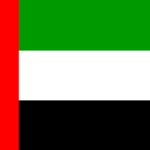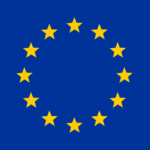PESTEL analysis of the Netherlands (Country Profile)
This detailed PESTEL analysis of the Netherlands aims to address some of the political, economic, social, technological, environmental, and legal factors that affect the Netherlands today. The Netherlands is one of the most democratic and richest countries in the world. It is informally and widely known as ‘Holland’ and the people of the country are known as ‘Dutch’.
Political factors affecting the Netherlands
The Netherlands is a constitutional monarchy. It is also a parliamentary democracy. The monarch is the head of state; however, has limited powers and ceremonial functions. A coalition of different political parties govern the country as a single party does not usually wins the majority in elections. The Prime Minister is the head of government who usually comes from the party that won the most seats in the elections. There are a number of parties in Dutch politics; however, the three dominant ones are the PvdA (The Dutch Labour Party), the CDA (The Christian Democrats), and the VVD (The Dutch Liberals).
The Netherlands is a keen advocate of the European Union; however, voices against the union are also heard in different corners of the country. It works closely with the USA and other countries on a variety of international programmes. It is a member of the UN, the EU, NATO, CoE, WTO, IMF, OECD, and OSCE. The government of the Netherlands does not much interfere with the country’s market system. The main impact of the government on the economy is through regulation and taxation.
The Netherlands is one of the least corrupt countries in the world. Political corruption is not tolerated at all, and any cases that arise are dealt with appropriately. It is a tolerant, friendly and co-operative society; however, the rise of far-right politicians has been a concern for many people. Some politicians have also been accused of using defamatory and provocative languages in public that normalise stereotypes, prejudices, and paranoia.
Economic factors affecting the Netherlands
The next element to address in the PESTEL analysis of the Netherlands is the economic environment. The Netherlands is a part of the euro zone and the 17th largest economy in the world. It is also the 5th largest economy in the European Union. Its GDP is expected to reach around $990 billion by the end of 2023 (Trading Economics, 2022).
Compared to many EU countries, the Netherlands has lower unemployment rates. It is the third-highest minimum wage paying country in the EU. Its GDP per capita is also relatively high within the Union. However, it is worth noting that the Netherlands has some of the highest income taxes in the world.
Refined petroleum, broadcasting equipment, crude petroleum, human/animal blood, packaged medicaments are the top exports of the Netherlands which mostly go to countries such as Germany, Belgium-Luxembourg, the UK, France, and Italy. The main imports of the Netherlands are crude petroleum, refined petroleum, broadcasting equipment, office machine parts, and computers that mostly come from countries such as Germany, Belgium-Luxembourg, China, the USA, and Russia (OEC, 2022).
Netherlands also has some of highest public spending in Europe with a big portion of its budget going towards social security programs such as old age pensions, unemployment benefits, rent benefits, family allowances for children, general tax credit, labour tax credit etc.
There are so many multinational companies that operate in the Netherlands. These along with the domestic ones offer huge employment opportunities for both locals and expatriates (Lazell, 2022). A stable economy with constant inflow of foreign direct investments has made the country a great place work and live.
However, it is worth mentioning that highly skilled workers such as engineers, IT specialists, finance specialists etc. are in high demand as the local supply of talent does not meet the demands. Therefore, the Netherlands offers a fast-track immigration process to attract foreign talents (Lazell, 2022).
Social factors affecting the Netherlands
The Netherlands is one of the richest countries in the world and its people are happier than those of many European nations. The Dutch people tend to work less hours and therefore, can spend more time with family and friends. They earn better as well; hence better standards of living. In fact, they are a very good example of work-life balance.
The Netherlands is a friendly and tolerant country. Its total population is over 17.1 million (Worldometers, 2022). The life expectancy for men is 80 years, while 84 years for women. The major language is Dutch, while Christianity is the major religion. The Netherlands has an easy-going café culture, and cultural and sporting events take place throughout the year. Though Dutch is the major language, almost everyone in the country can speak English.
However, there are some social challenges facing the Netherlands today. For instance, social inequality is a major problem. There is a widening gap between highly educated people benefitting from globalisation and less educated people being left behind by it. Likewise, racial discrimination and discrimination against disabled people and pregnant women have also been reported in various media.
Technological factors affecting the Netherlands
Technological environment is a key part of discussion in the PESTEL analysis of the Netherlands. The Netherlands is one of the leading countries in Europe in technological advancement. It has been on the forefront of innovations like robotics, and artificial intelligence. English-speaking and tech-savvy work force has made it easy for global IT companies such as Microsoft, Cisco, Interxion, Infosys, Huawei, Oracle, Netflix, Intel, IBM, Uber, Verizon, and Google to establish their presence in the country.
Amsterdam Science Park is a hub for high-quality technical facilities and research institutes (Netherlands Foreign Investment Agency, 2022). It is worth noting that tech development is not confined to the capital only, rather it can be found all over the country.
The use of social media is widespread in the Netherlands. WhatsApp, and Facebook are the most used platforms, whereas Instagram’s user number is growing fast as well (Statista, 2022). This shows that there are enormous opportunities for online businesses in the country. However, it is worth noting that the Netherlands, particularly, Amsterdam has an acute shortage of tech talent, and many jobs are not filled due to this shortage.
Environmental factors affecting the Netherlands
The Netherlands is small but a picturesque country. Its offer of seven UNESCO world heritage sites, world-renowned museums, historical monuments, beautiful canals, islands, stunning towns and villages, and colourful nightlife attract tourists from all over the world, particularly from the neighbouring countries.
However, the Netherlands faces some big environmental challenges. For instance, it is considered Europe’s most dangerous place to live as large parts of the country are below sea level. In fact, around one third of it lies below sea level, with the lowest point being 22 feet below sea level (Netherlands Tourism, 2021). It is also highly exposed to natural disasters and climate change. Other environmental challenges for the country are air and water pollution, loss of biodiversity, and overexploitation of natural resources.
Legal factors affecting the Netherlands
The last element to address in the PESTEL analysis of the Netherlands is the legal landscape of the country. However, it is worth noting that due to the limited scope of the article, the discussion here is somewhat limited.
As a liberal and tolerant country, many things are legal in the Netherlands which are unlikely to be legal in many other countries. The judiciary is independent of political interference and anyone whether locals or foreigners, can expect an impartial trial and justice from the judicial system. Dutch Equal Treatment Act prohibits discrimination on the grounds of religion, personal beliefs, political opinion, race, nationality, civil status etc. (L&E Global, 2020).
The Netherlands has a rich history of religious, and political tolerance. The Dutch have a high sense of personal freedom and have literally no restrictions on what they can do. 0pen-mindedness with low crime rates has made the Netherlands a great place to live.
We hope you like the article ‘PESTEL analysis of the Netherlands (Country Profile)’. If you have liked it, please share it with others to support our research work.
You may also like reading:
SWOT analysis of the UK (UK country profile)
PESTEL analysis of the United Arab Emirates (UAE)
Advantages and disadvantages of a private limited company
Last update: 04 February 2022
References:
Statista (2022) Number of individuals using the leading social media platforms in the Netherlands in 2019, by social network (in million users), available at: https://www.statista.com/statistics/579626/social-media-penetration-in-the-netherlands-by-social-network/ (accessed 19 October 2019)
Lazell, M. (2022) Work in the Netherlands: finding a job, available at: https://www.expatica.com/nl/employment/finding-a-job/work-in-the-netherlands-finding-a-job-102331/ (accessed 04 February 2022)
L&E Global (2020) Anti-Discrimination Laws in The Netherlands, available at: https://knowledge.leglobal.org/anti-discrimination-laws-in-the-netherlands/ (accessed 04 February 2022)
OEC (2022) the Netherlands, available at: https://oec.world/en/profile/country/nld/ (accessed 04 February 2022)
Netherlands Foreign Investment Agency (2022) The digital gateway to Europe, available at: https://investinholland.com/industries/information-technology/ (accessed 04 February 2022)
Netherlands Tourism (2021) Is the Netherlands below sea level? available at: https://www.netherlands-tourism.com/netherlands-sea-level/ (accessed 04 February 2022)
Trading Economics (2022) Netherlands GDP, available at: https://tradingeconomics.com/netherlands/gdp (accessed 04 February 2022)
Worldometers (2022) Netherlands population, available at: https://www.worldometers.info/world-population/netherlands-population/ (accessed 03 February 2022)
Author: Joe David
Joe David has years of teaching experience both in the UK and abroad. He writes regularly online on a variety of topics. He has a keen interest in business, hospitality, and tourism management. He holds a Postgraduate Diploma in Management Studies and a Post Graduate Diploma in Marketing Management.


